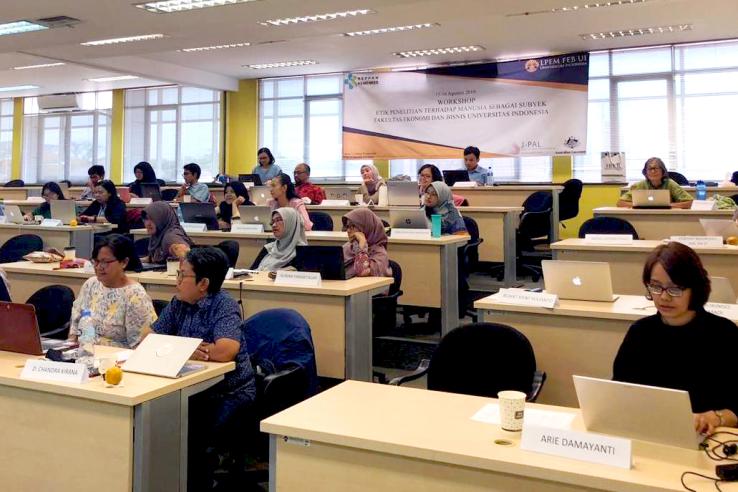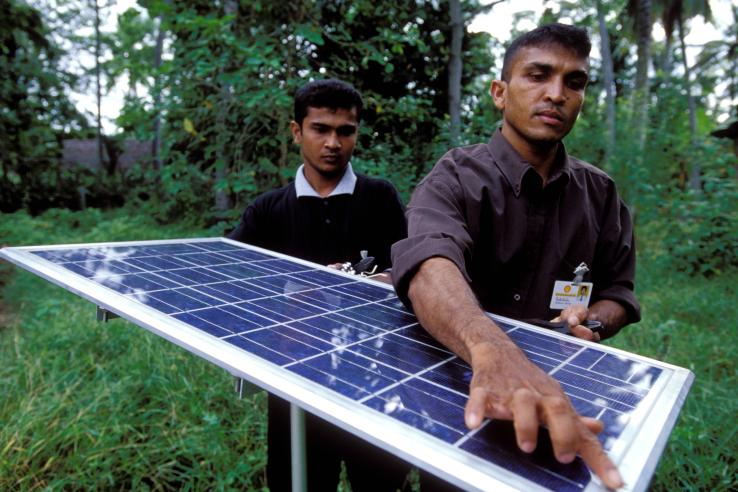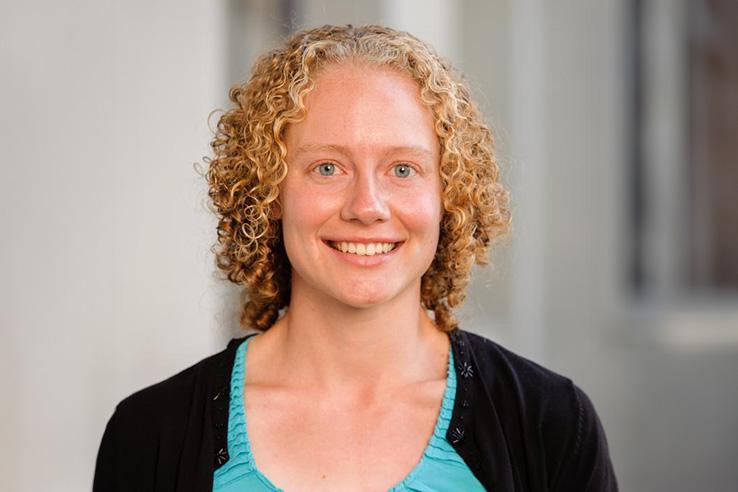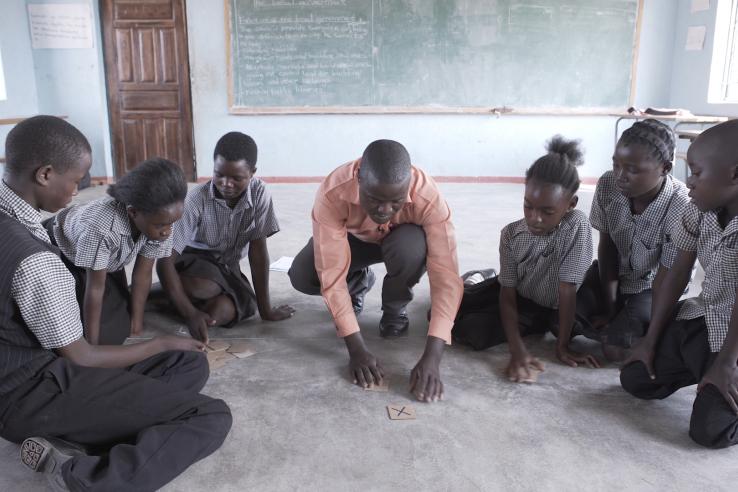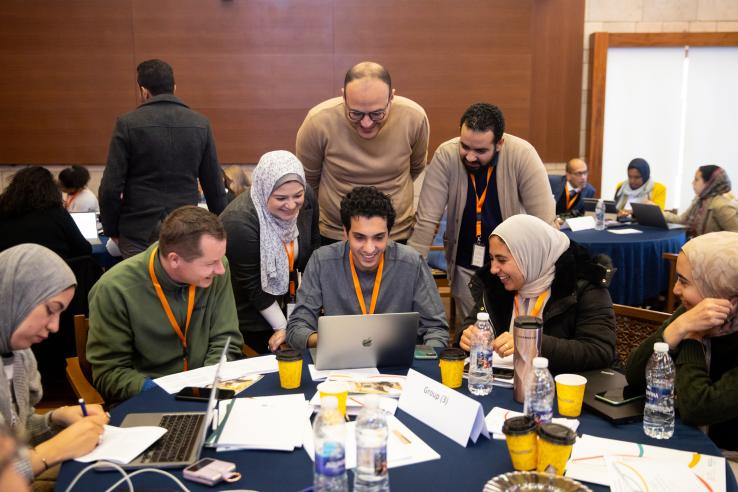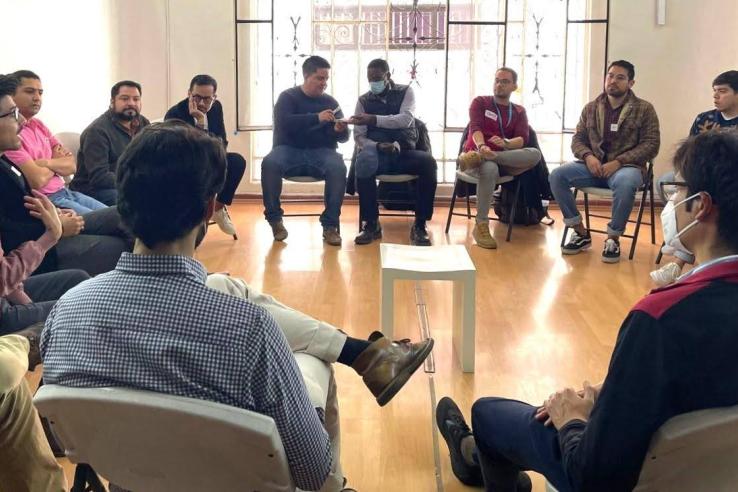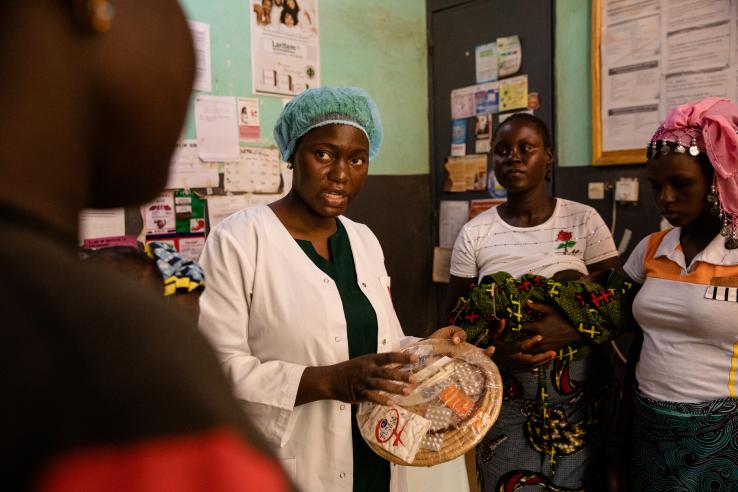Displaying 3196 - 3210 of 8424
Person
Person
Person
Blog
International research collaborations—those composed of principal investigator (PI) teams based in different countries—are increasingly common and have the potential to strengthen the capacity of research teams and the quality of research projects. As with any research collaboration, successful...
Event
The IZA Institute of Labor Economics (IZA) and the Abdul Latif Jameel Poverty Action Lab (J-PAL) are pleased to invite you to a policy roundtable on “Harnessing Rigorous Research to Shape Climate Policy and Inform the Public Debate” , taking place on the evening of Wednesday, 14 May 2025 , in Bonn...
Blog
This blog features an interview with Judge Veronica Galvan, a member of the King County Superior Court, on the role of evaluating judicial programs.
Blog
In our new postdoc alumni spotlight series, we spoke with Megan Lang, J-PAL '22, about her experience as a postdoctoral researcher at J-PAL Global.
Update
J-PAL Updates
In this month's newsletter, we announce J-PAL North America’s new Initiative for Effective US Crime Policy and share new research results from the field.
Event
El cambio climático no es solo una crisis ambiental; es una crisis humana que afecta de manera desproporcionada a las comunidades más vulnerables. El 27 de marzo se llevará a cabo el seminario internacional “Un futuro compartido: la urgencia de actuar contra el cambio climático” en la Pontificia...
Blog
Over the past two decades, J-PAL and members of our research network worked closely with USAID on many projects to design, pilot, and evaluate innovative solutions; scale up those found to be effective, scale down those that do not work; and widely share the learnings.
Event
A peer-to-peer learning event (co-hosted by EIL and ETF) that combines high-level policy dialogue with practical technical training to build sustainable evidence ecosystems in education and employment.
Blog
Our work at J-PAL Latin America and the Caribbean (LAC) is made possible by the close collaboration with and dedication of many governments across the region who recognize the importance of using data and evidence to improve social programs and public policy. We will translate some lessons of this...
Blog
In our new postdoc alumni spotlight series, we spoke with Alipio Ferreira, J-PAL '23, about his experience as a postdoctoral researcher at J-PAL Latin America and the Caribbean.
Update
J-PAL Updates
The March newsletter reflects on the end of USAID, clean air and water access in Egypt, and supporting public safety in the US.
Evidence to Policy Case Study
Case study
An evidence-based family planning campaign delivered via mass media was scaled up across Burkina Faso, reaching 80 percent of the country’s population, and adapted in seven countries in southern and eastern Africa.
